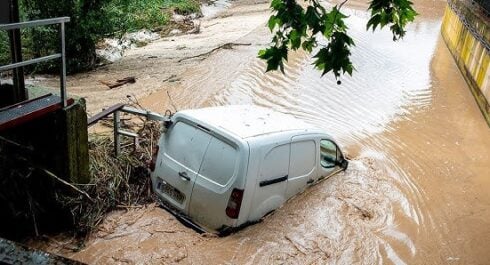A MAJOR Spanish tourist destination is set to double its tourist tax amidst increasing tensions between locals and visitors.
The Catalan government announced new legislation yesterday doubling tourist taxes in the region as a bid to tackle mass tourism.
According to some reports it could rise to as much as €15 per night in Barcelona’s five-star hotels.

At least 25% of the proceeds will go towards new housing policies, to alleviate the region’s housing crisis.
Pushed by the Catalan government and local Sumar branch, Comuns, the measure starts from €1.20 in basic accommodations and camp sites.
Outside Barcelona, rates can rise up to €6 per night.
In the city tourist taxes begin at €2 and despite some reporting that they could rise up to €15, the figure confirmed so far is €7.
Last year, Catalunya earnt €90 million from the measure, rising from €85 million in 2023.
Following this trajectory, they are expected to bring in €200 million each year.
The measures also invited local councils to decide their own tourist tax rates, as the Catalan capital already does.
After months of negotiations, the new regulations were agreed this Thursday and are expected to be approved soon.
Despite backlash from hoteliers, the government has defended the decision, saying it ‘will do more good than harm’.
A quarter of the profits will go towards measures to provide affordable housing to young and vulnerable people.
The regulation of the Fund for the Promotion of Tourism has also been modified, meaning local authorities can allocate funds to ‘housing, economic promotion and cultural diversification’ policies.
Another substantial change is that municipalities can approve a surcharge on established rates, as Barcelona does.
The Catalan capital expects to earn €115 million a year, €20 million more than 2024’s €95 million.
Barcelona’s hotels reached a record turnover of €2.2 billion last year and the city intends to use this additional money to pay for cleaning and security costs, as well as investing in Fira de Barcelona.
Taxes will also rise for cruise passengers, who will pay between four and six euros depending on the number of hours they stay on Catalan soil.
The new taxation also contributes to the agreement reached this week between the Government and Comuns to allocate several public plots to the construction of 1,200 public housing units in different areas of Catalonia: Terrassa, Llança, Barcelona, Sant Vicenç de Castellet, Esplugues, Girona, Tarragona, Xerta, Prades and Figueres.
Click here to read more Barcelona News from The Olive Press.









A much more effective punishment to inflict on tourists would be simply close all hotels!
I thought hotels are there to provide services to guests – be they foreign tourists, local tourists or business representatives.
So will this tax be applied across the board to all guests?
Hi,
Will this tourist tax apply to residents of Spain, i.e. I live in the Alicante area, if I go to Catalonia will I have to pay the tax?
Very good question …
I would guess yes